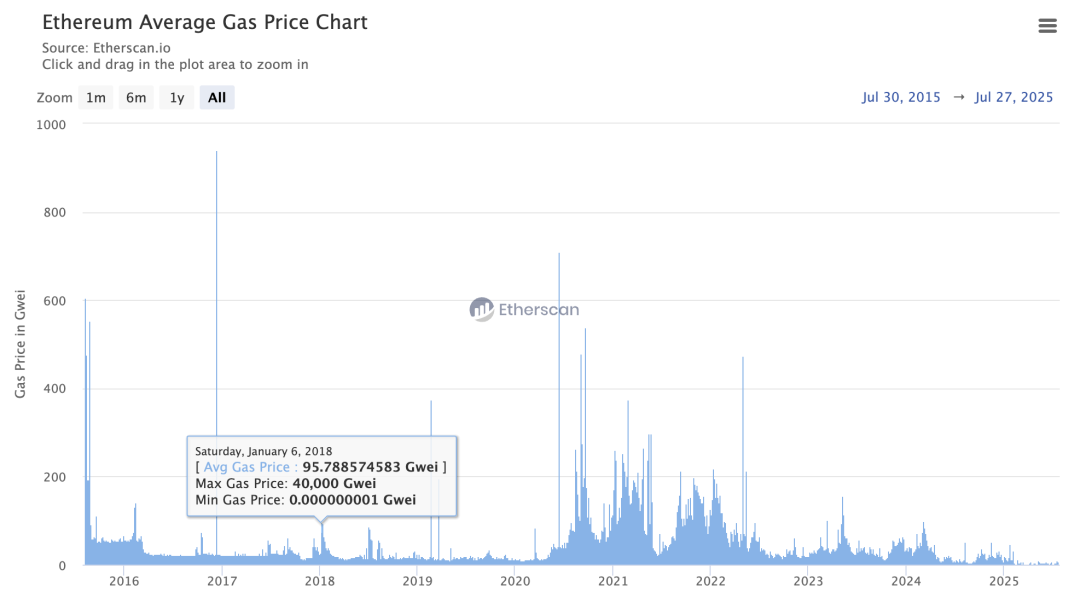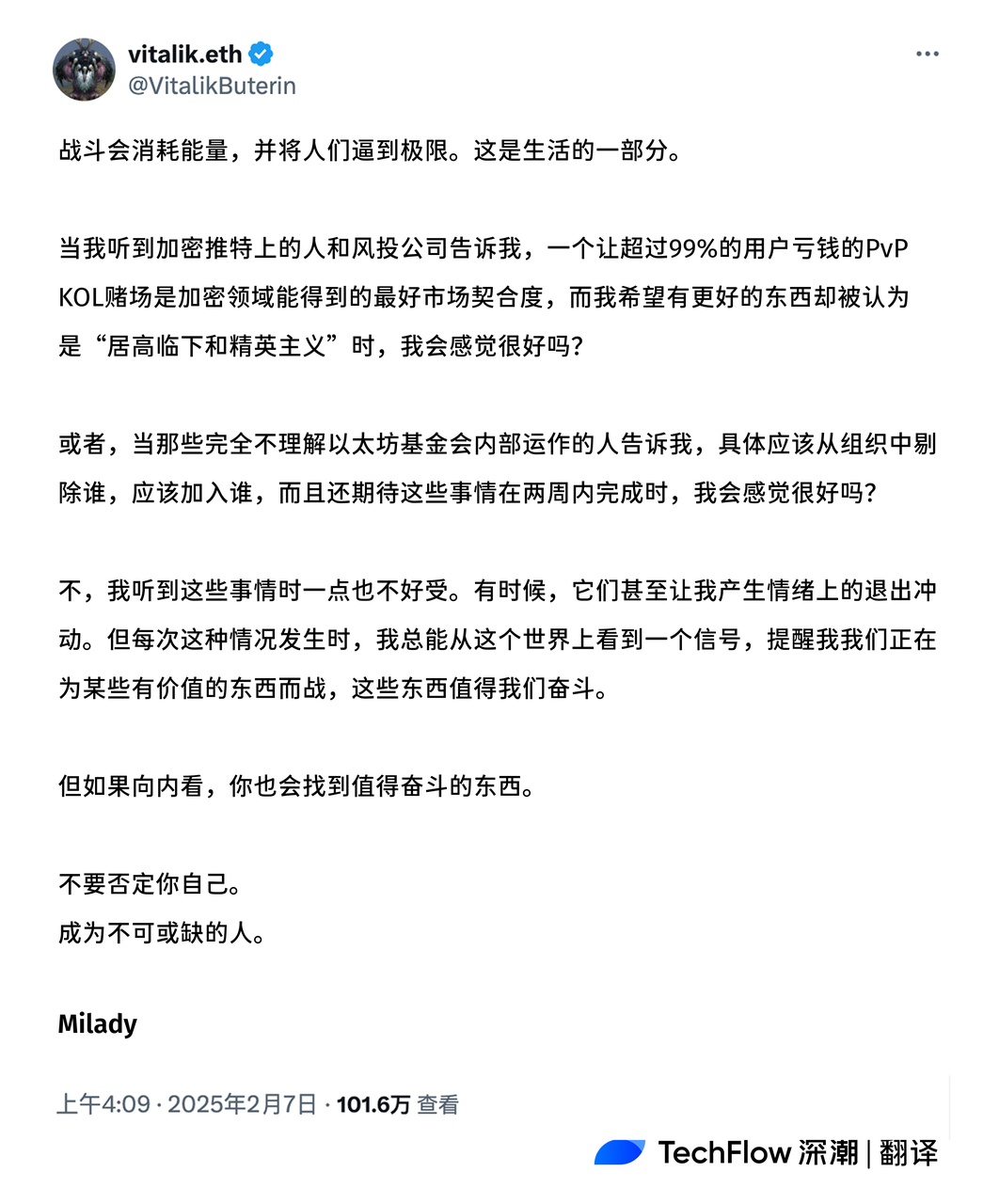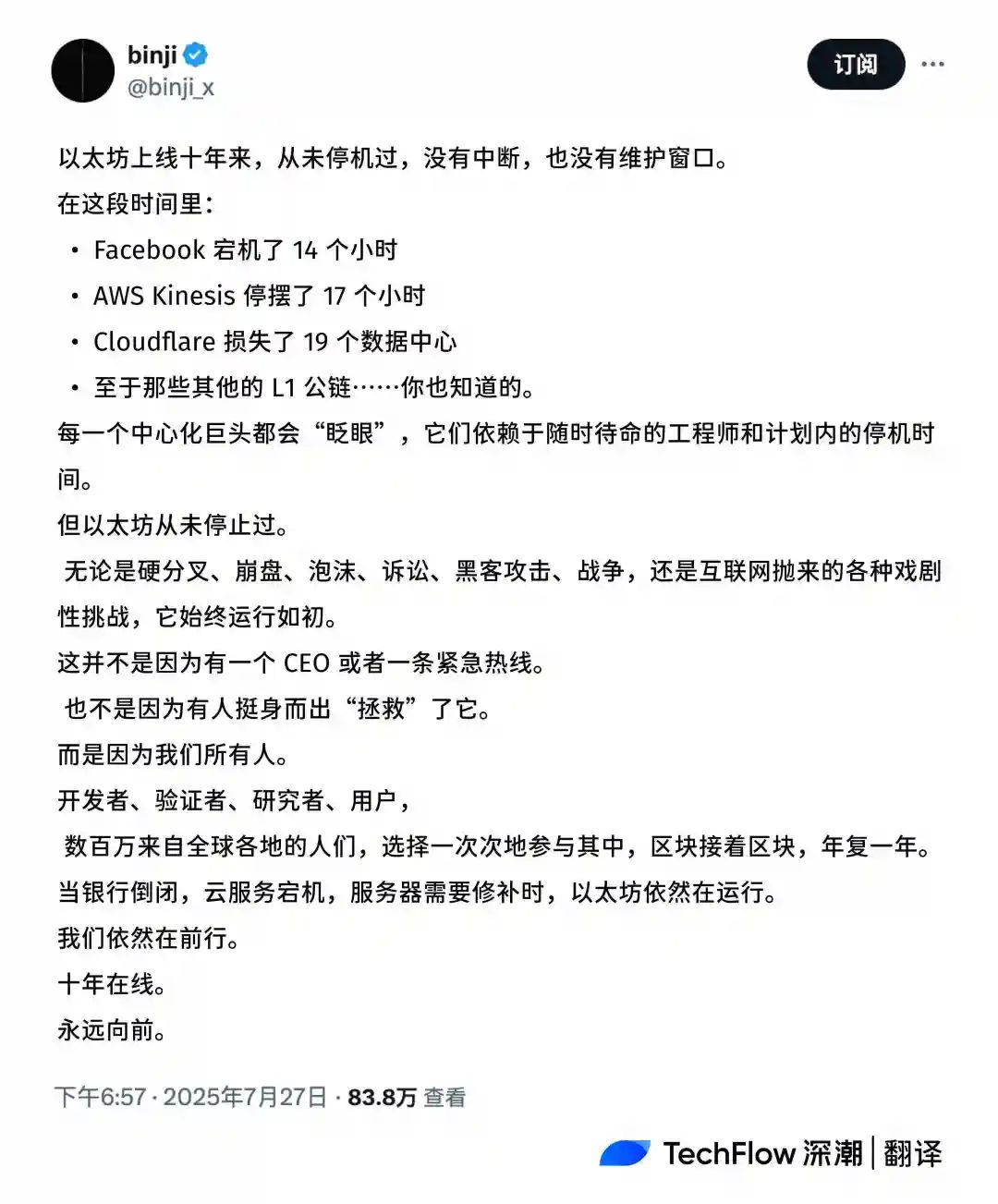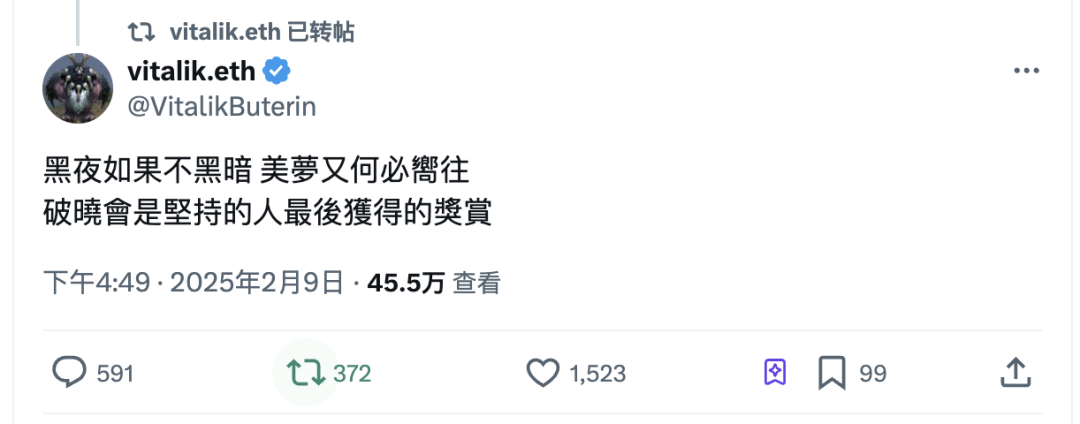Author: Vitalik Research Institute
On July 30, 2015, the Ethereum mainnet was launched.
Bitcoin grew organically like a myth, depersonalized and unalterable; Ethereum, on the other hand, resembles an unfinished script, with its author never leaving the stage.
Vitalik Buterin, the young and renowned technological idealist, spent a decade infusing his personal philosophy, values, and struggles into code.
From the initial vision of a "world computer" to reflections on governance during the DAO crisis, from the Merge to deep transformations within the foundation… every evolution of Ethereum has etched the marks of Vitalik's thoughts.
The ten years of Ethereum also represent a history of the evolution of Vitalik's ideas.
The Genius's Utopia
In 2008, a financial crisis brought an unprecedented storm.
As banks collapsed and trust eroded, Bitcoin emerged, sounding the trumpet of rebellion against the old world. This emerging technology not only attracted geeks and cryptography enthusiasts but also changed the life trajectory of a young man—Vitalik Buterin.
Heroes have always emerged from youth; at the age when most people encounter love, 17-year-old Vitalik encountered Bitcoin.
In 2011, he learned about Bitcoin from his father—a computer scientist. After giving up on World of Warcraft, Bitcoin became Vitalik's new hobby.
He began searching online for Bitcoin forums until he found someone willing to pay him in Bitcoin for his articles; at that time, he could earn 5 Bitcoins for each blog post he published.
Vitalik's articles quickly caught the attention of Romanian Bitcoin enthusiast Mihai Alisie. The two began corresponding and co-founded Bitcoin Magazine at the end of 2011.
In 2013, Vitalik traveled around the world with the Bitcoins he earned from his articles, visiting local Bitcoin enthusiasts in places like Israel, London, San Francisco, and Los Angeles. Upon returning to Toronto, he became convinced that everyone's understanding of blockchain 2.0 was completely wrong.
They all tried to build complex applications on Bitcoin, but Bitcoin's scripting capabilities were too limited.
Vitalik realized that if he wrote a version of Bitcoin with a Turing-complete programming language, the network could provide all digital services, replicate social networks on the blockchain, reorganize stock markets, and even establish fully digital companies, free from the jurisdiction of any government entity.
In November of that year, 19-year-old Vitalik turned his idea into a white paper and named it: Ethereum.
This white paper quickly swept through the crypto community, and people realized for the first time that blockchain could be more than just currency; it could be a global decentralized platform.
Co-founders like Joseph Lubin and Gavin Wood joined in, with Lubin even calling him a "genius alien bringing the gift of decentralization."
At that time, Vitalik was an extremely pure idealist. In interviews, he openly stated that he held a dualistic worldview, believing that most social ills stemmed from centralization. "I see everything involving government regulation or corporate control as pure evil."
However, there is always a chasm between idealism and reality.
The first divergence erupted within the team. Some co-founders wanted Ethereum to become a profitable business entity, while Vitalik preferred to stick to a non-profit, open community model. He even proposed reducing his and other founders' allocations in Ethereum to avoid future power concentration.
In June 2014, the conflict reached its peak.
Vitalik demanded that Charles Hoskinson and Amir Chetrit leave the team, and that year he established the Ethereum Foundation (EF) to establish a non-profit governance direction. In the same year, Gavin Wood also left due to disagreements with Vitalik over development priorities and the non-profit direction, later founding Polkadot in 2020.
In an interview with TIME, Vitalik admitted that the vision for Ethereum's transformation risked being overwhelmed by greed:
"If we don't make our voices heard, what can be built will only be those things that can generate immediate profits, and they are often not what the world truly needs."
On July 30, 2015, dozens of young developers witnessed the automatic launch of the Ethereum mainnet in a small office in Berlin. There were no lavish celebrations, no large-scale media coverage, just a group of idealists quietly watching the blocks running on the screen.
The vision of a "world computer" transitioned from a white paper to reality.
However, behind the halo, the young Vitalik was not prepared to face a more complex and brutal reality.
The Cracks in Idealism
In the initial years of Ethereum's birth, Vitalik was more like a pure technological utopian. He firmly believed that the ultimate significance of blockchain lay in decentralization, emphasizing that anyone could freely build applications on Ethereum without the approval of a central authority.
At Devcon 1 in 2015, Vitalik repeatedly emphasized Ethereum's open and trustless characteristics, painting a picture of an ideal world dominated by code rather than power.
But decentralization does not mean that everything naturally trends toward goodness. Vitalik opposed centralization but inevitably became the final arbiter of community opinions. This subtle power paradox was magnified during the subsequent DAO crisis.
In 2016, The DAO, as the world's first decentralized investment fund, operated on Ethereum, raising over 12 million Ether, worth $150 million. However, in June, a hacker exploited a vulnerability in the smart contract to launch an attack, stealing about 3.6 million ETH.
That year, Vitalik was only 22 years old and had just gotten used to being called "V God." After the crisis broke out, he communicated with the community almost around the clock, formulating plans and attempting remedies.
The urgent need to protect investors' assets created a significant conflict with the technical tenet of decentralization. Ultimately, Vitalik chose a compromise and pragmatic path: advocating for a hard fork to restore the stolen funds and allowing the entire community to vote on the decision.
This decision successfully stabilized the market and led to the split of Ethereum into today's ETH and ETC.
In this crisis, Vitalik lost not only sleep but also his confidence in the "perfect execution" of smart contracts and the originally "perfect" image of a leader. Because of this incident, the "saint" who trusted technology 100% disappeared, and a more pragmatic Vitalik emerged.
After the DAO crisis, Vitalik acknowledged the gap between ideals and reality in his blog post "Thinking About Smart Contract Security." He proposed the need for stricter security audits and formal verification and began discussing governance issues in public speeches, emphasizing that "community collaboration" rather than technological absolutism was the key to Ethereum's success.
The crisis brought reflection, but the market quickly entered a speculative frenzy, leading to a heavy burden on the network.
In 2017, ICOs (Initial Coin Offerings) became a phenomenal fundraising method, with projects like EOS, Tezos, and Bancor easily raising hundreds of millions of dollars on Ethereum. By the end of the year, the NFT game CryptoKitties caused severe congestion on Ethereum due to a surge in users, with gas fees once exceeding 800 Gwei. Vitalik realized that if scalability issues were not resolved, Ethereum would struggle to achieve its inclusive vision.

In interviews, he did not hide his disappointment with the industry's speculation:
"Many projects seem decentralized, but they are just repackaged. We must prove that the reason for blockchain's existence is genuinely superior to traditional technologies (like Excel spreadsheets)."
The hype quickly faded, and in 2018, the entire crypto market crashed, with ETH falling from $1,400 to $83, and many ICO projects perished.
During this time, Vitalik continuously pondered how to steer blockchain back in a meaningful direction.
In 2018, he co-authored "Radical Markets: Uprooting Capitalism and Democracy for a Just Society" with Harvard scholar Zoë Hitzig and Microsoft researcher Glen Weyl, proposing a quadratic voting mechanism, hoping to support truly valuable public goods through public funding models rather than being dominated by short-term speculation.
To address issues like network congestion caused by insufficient scalability, Vitalik and community developers proposed EIP-1559, introducing a dynamic gas fee mechanism and promoting Ethereum's transition from proof of work (PoW) to proof of stake (PoS) to reduce energy consumption and improve transaction throughput.
The DAO crisis, speculative bubble, and price crash led Vitalik through a profound ideological shift. He transformed from a "technical saint" pursuing extreme decentralization into a builder who must consider security, governance, and social value.
Ethereum remained his utopia, but it was no longer a purely technological paradise; it became a rugged path of reality that required compromise, trade-offs, and a broader vision.
In this process, Vitalik gradually found his own pragmatic philosophy.
The Battlefield Beyond Code
If the period from 2015 to 2019 saw Vitalik undergo a transformation from pure technological idealism to pragmatism, then from 2020 to 2022, he experienced another key ideological shift: he began to confront the complexities of the real world, moving from a purely technical idealism to a multidimensional consideration of social governance, public responsibility, and real politics. Particularly, the Russia-Ukraine war prompted him to use his influence to confront political issues.
In August 2020, he proposed in his blog post "Trust Models" that blockchain can never be completely "trustless," as social contracts and power relations in reality cannot be entirely dissolved, contrasting sharply with his earlier hope to completely replace human consensus with code.
In 2021, Vitalik criticized the singular token voting governance model in his blog post "Moving Beyond Coin Voting Governance," arguing that capital weight should not be the sole decision-making logic. He called for the establishment of diverse consensus and soft governance mechanisms, attempting to make blockchain more aligned with the decision-making logic of human society.
An idealist further integrating into reality.
2022 was a year of significant challenges for both Ethereum and Vitalik—the Merge.
The transition from PoW to PoS was not smooth. Many original Ethereum community members criticized PoS for effectively concentrating power further in the hands of large capital holders, while some miners and node operators expressed dissatisfaction with the abandonment of the PoW mining model they had worked hard to maintain for years.
Cardano founder Charles Hoskinson described Vitalik as a dictator of Ethereum, criticizing it as a "dictatorial regime" where Vitalik holds too much power.
Despite this, Vitalik and the foundation steadfastly pushed forward with the Merge. On September 15, Ethereum officially completed the Merge, marking the exit of PoW from history.
Vitalik emphasized that this upgrade not only drastically reduced PoW energy consumption (by about 99.95%) but also laid the groundwork for future steps like Sharding and Rollup scalability, making it possible to achieve throughput of thousands to tens of thousands of transactions per second.
In response to the "dictator" label, he stated that Ethereum's governance relies on community consensus rather than unilateral decisions, with all significant changes going through EIPs, core developer meetings, and public discussions.
In February of the same year, the Russia-Ukraine war broke out.
As a Russian-born individual from Moscow, Vitalik rarely broke his "neutrality," condemning Putin in Russian on Twitter, calling it a "crime against the people of Ukraine and Russia," and writing the widely circulated phrase: "Ethereum is neutral, but I am not."
Just weeks later, Vitalik reached out to Ukraine through crypto donations, contributing a total of 1,500 ETH (approximately $5 million) to humanitarian and military support via the Unchain Fund and Aid for Ukraine.
In September of the same year, he personally visited Kyiv to attend the Kyiv Tech Summit and the ETHKyiv hackathon, expressing his support for Ukraine.
"I wanted to see for myself the Ethereum projects that are still thriving amidst the war and understand the developers behind them," he said. "Ukraine could become the next Web3 hub."
"Just focus on building Ethereum; why mix in politics?"
Vitalik faced criticism once again but remained unfazed. In an interview with Time, he candidly stated, "One of the decisions I made in 2022 was to try to be more daring and no longer remain neutral. I would rather have Ethereum offend some people than become a hollow shell that represents nothing."
This statement also hinted that the scope of Vitalik's "offense" was expanding, with social value becoming the core of his concerns. Even the NFT boom that year, which could benefit Ethereum, did not escape Vitalik's sharp criticism.
"If crypto is just about people buying and selling pictures of monkeys to get rich, then it loses its reason for existence."
Especially after the collapse of Luna and FTX, Vitalik believed that the real issues in the crypto world were no longer about the security of underlying protocols and scalability but rather how to realize social value at the application layer.
He called on the community to build decentralized applications that could improve public governance, fund public goods, and promote transparent financial tools.
In his blog post "What in the Ethereum application ecosystem excites me," he listed the application directions he was most looking forward to:
- Scalability solutions centered around Layer 2 and Rollup;
- Privacy protection technologies based on zero-knowledge proofs;
- DAOs driven by public goods funding mechanisms;
- Prediction markets and stablecoins that solve real-world problems.
After experiencing the controversies of the Merge, the impact of war, speculative frenzy, and industry collapse, Vitalik was no longer just a geek sitting behind code. For the first time, he actively stepped into the spotlight, participating in public issues as an actor and thinker.
His ideal state began to take on a new shape: not just a technical architecture, but a multidimensional experimental field where governance, freedom, and public value coexist.
Dawn in the Darkness
After the Merge was completed, Ethereum's technical roadmap entered a stable period.
At this moment, the NFT craze receded, and the heat of DeFi dissipated, leading the crypto industry into a phase of anxiety over "no new narratives." During this stage, Vitalik continuously promoted the concepts of public goods funding and information finance:
Supporting open-source development and community governance through Gitcoin and quadratic funding mechanisms;
Exploring prediction markets and data financial tools to make information a valuable and incentivized asset;
Advocating for more decentralized applications to focus on social issues and public governance rather than purely speculative tools.
Meanwhile, the AI wave driven by ChatGPT swept the globe, and the Silicon Valley tech faction popularized "effective accelerationism (e/acc)," believing that technology and innovation should be pursued as quickly as possible, holding an optimistic and welcoming attitude toward AGI.
Vitalik, however, stood on the opposite side, proposing a more cautious path—"defensive acceleration (d/acc)," advocating that technological development should prioritize "defense" to protect democracy and decentralized order, which highly aligns with Ethereum's original intention. In his blog post "My techno-optimism," he warned of the centralization risks posed by AI: "A government controlled by 45 people could dictate the fate of billions."
The awakening brought by AI and the development of Ethereum intertwined in Vitalik's mind. In "Make Ethereum Cypherpunk Again," he called for Ethereum to reclaim the early spirit of cryptography: privacy protection, open-source collaboration, and decentralized power.
He continued to emphasize this point in interviews, stating that Ethereum is not an institutional tool but an infrastructure for individual empowerment. Its purpose is to resist the centralization of power, not to become a new centralized order.
However, there has always been a gap between ideals and the market.
In 2024, the crypto market did not follow Vitalik's guidance but instead moved toward the direction he criticized. The narratives around privacy, Layer 2, and other technologies he advocated were neglected by the market, and ETH prices remained sluggish for an extended period. Instead, MEME took center stage, with Solana gaining recognition as the "new Ethereum" due to its high performance and MEME ecosystem.
Market sentiment began to circulate claims that "Ethereum has aged" and "the foundation has lost its innovative power." The Chinese community was particularly vocal, accusing the foundation of frequently selling ETH, neglecting developer support, having conflicts of interest with researchers and external projects, and surrounding Vitalik with sycophantic praise…
Vitalik did not hide his frustration on X: crypto Twitter and VCs viewed the "KOL gambling game with 99% user losses" as the best product in the industry; outsiders knew nothing about the foundation's internal affairs yet demanded he complete a thorough reform within two weeks. These voices once made him consider stepping back, but every time he thought about giving up, some signals reminded him that "it was worth continuing the fight":
"Do not self-doubt; make yourself unshakable."

Criticism continued, but change was happening.
In January 2025, Vitalik announced a major reform of the Ethereum Foundation's leadership structure on X; in March, the Ethereum Foundation announced significant personnel adjustments:
Former Executive Director Aya Miyaguchi transitioned to the role of Foundation Chair;
Hsiao-Wei Wang and Tomasz Stańczak were promoted to new Co-Executive Directors;
Core researcher Danny Ryan founded a new experimental organization, Etherealize, to accelerate technology implementation.
As the saying goes, after the storm comes the calm. With the listing of Circle and the rise of stablecoins and RWA concepts, Ethereum once again became the focus as a core infrastructure.
Joseph Lubin, founder of Consensys, initiated "ETH reserves" through the U.S. stock company SharpLink Gaming (SBET), becoming the "Ethereum version of MicroStrategy." Companies like BitMine, Bit Digital, and GameSquare followed suit, kicking off the ETH reserve competition.
ETH prices doubled since April, with a 40% increase in July alone, as the market seemed to forget the doubts about Ethereum from a few months prior.
Vitalik did not explicitly endorse or deny the "MicroStrategy" model, but at the EthCC in early July, he once again issued his industry warning: Web3 stands at a crossroads, and unless developers anchor their work in freedom, decentralization, and privacy, the industry risks betraying its founding principles.
"Ethereum is at a critical moment," he stated. "The decentralized dream driving the blockchain revolution is gradually fading due to corporate involvement, political attention, and user convenience."
On July 30, Ethereum celebrated its 10th anniversary.
Vitalik's X homepage shared a post from Ethereum Foundation member Binji reflecting on "Ten Years of Ethereum":
"When banks collapse, cloud services go down, and servers are patched, Ethereum continues to run. We are still moving forward. Ten years online, always forward."

Interestingly, Vitalik recently shared a lyric he liked from the song "Starlight" by S.H.E:
"If the night is not dark, why long for sweet dreams?
Dawn will be the reward for those who persist."

This seems to be the best footnote to the tumultuous journey of Ethereum and Vitalik over the past two years: in the darkness, he chose to persist and wait for the dawn.
免责声明:本文章仅代表作者个人观点,不代表本平台的立场和观点。本文章仅供信息分享,不构成对任何人的任何投资建议。用户与作者之间的任何争议,与本平台无关。如网页中刊载的文章或图片涉及侵权,请提供相关的权利证明和身份证明发送邮件到support@aicoin.com,本平台相关工作人员将会进行核查。




